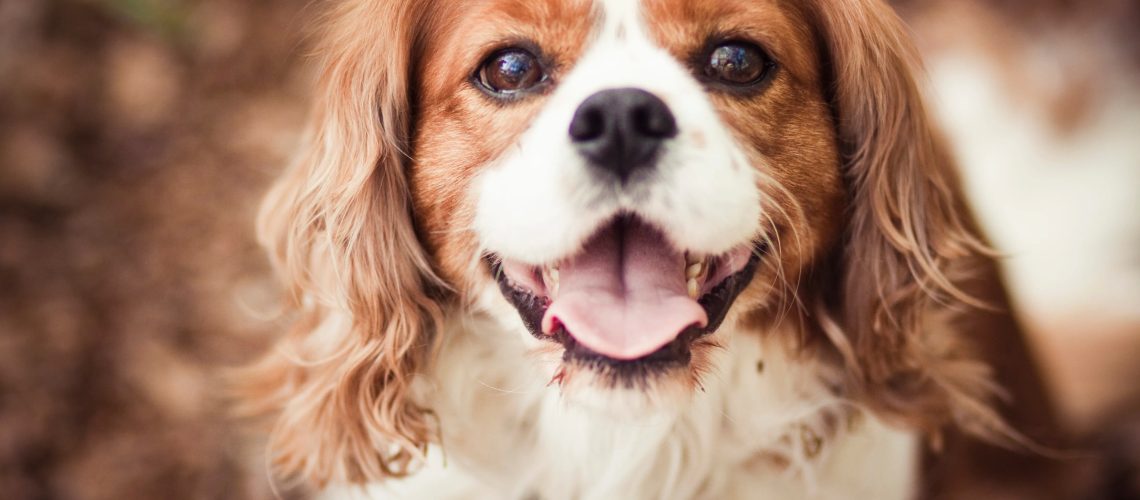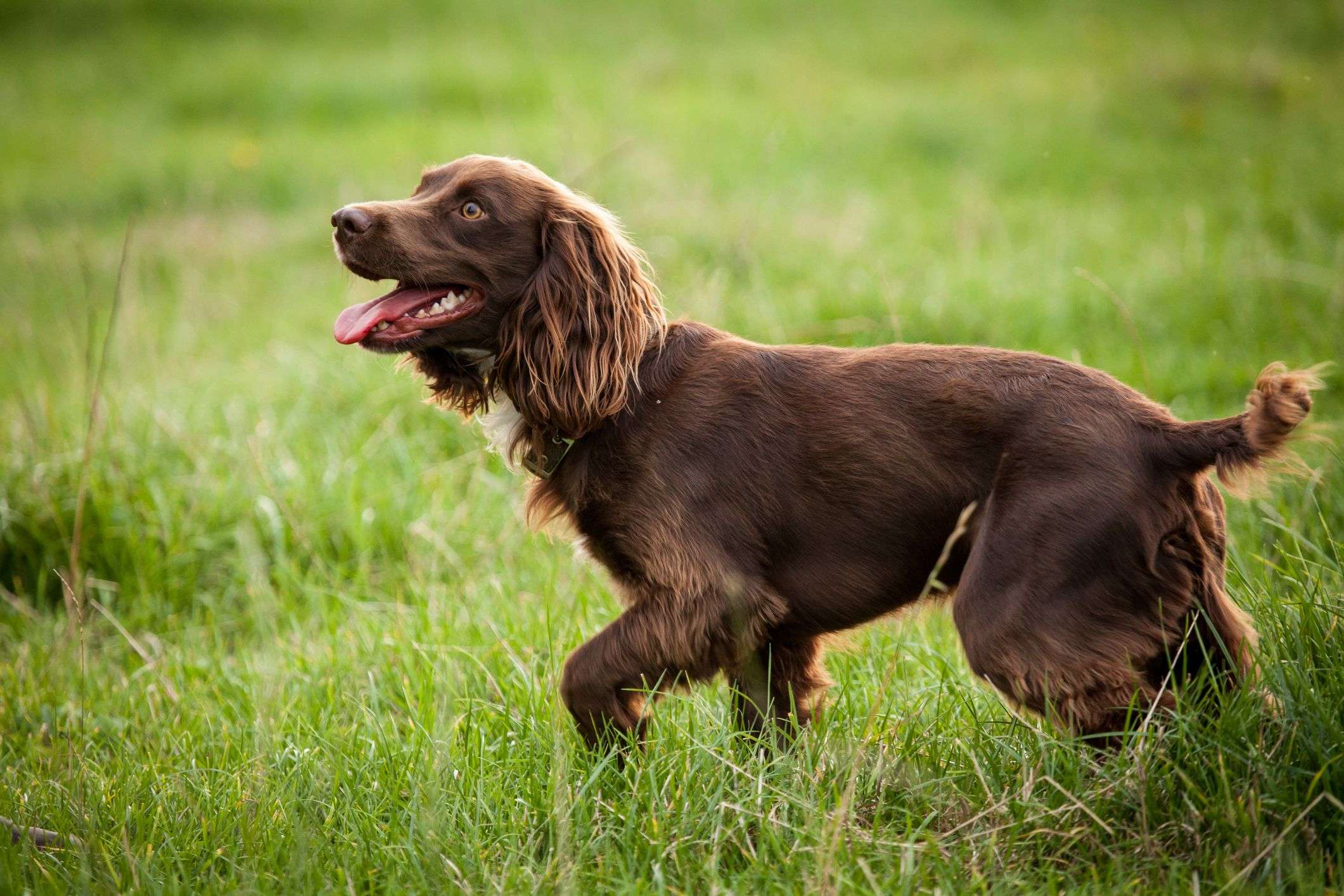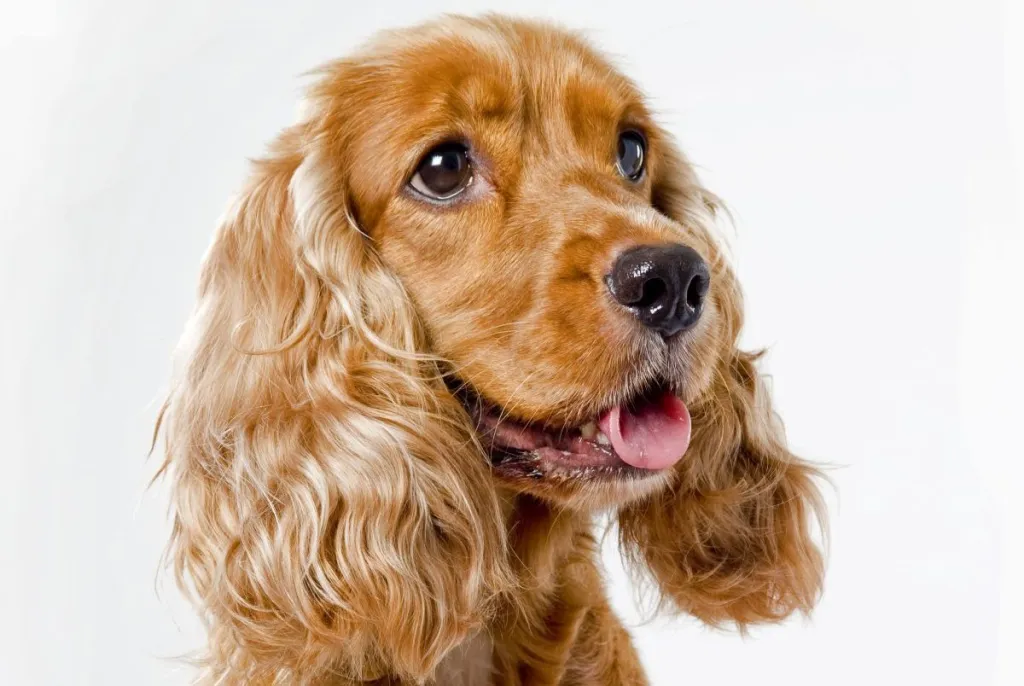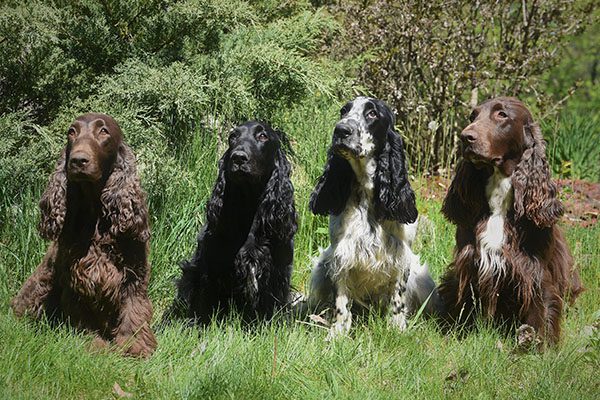Key Takeaways:
- Cavalier King Charles Spaniels are a small breed known for their friendly and affectionate nature.
- They require moderate exercise and enjoy activities like walking, playing fetch, and swimming.
- Regular grooming is necessary to maintain their long, silky coat and prevent matting.
- Cavaliers are prone to certain health issues such as heart problems, ear infections, and syringomyelia.
- Training should be started early on to ensure they develop good behavior and socialization skills.
Are you a dog lover? Do you find joy in learning about different dog breeds and their unique characteristics? If so, then you're in for a treat with today's topic: Cavalier King Charles Spaniels! These adorable little pups are known for their affectionate nature and charming personalities. But there's so much more to discover about these furry friends. Understanding the ins and outs of caring for a Cavalier King Charles Spaniel can bring immense value to your life. Whether you're considering adding one to your family or simply want to expand your knowledge, delving into this subject will provide you with insights that can enhance your relationship with dogs in general. So, let's dive into the world of Cavalier King Charles Spaniels and uncover the secrets behind their irresistible charm!
Key Characteristics of Cavalier King Charles Spaniels
Cavalier King Charles Spaniels are small, friendly dogs that are known for their beautiful, silky coats and expressive eyes. They have a gentle and affectionate nature, making them excellent companions for individuals or families. These dogs are known for their playful and outgoing personalities, always ready to join in on any activity.
One key characteristic of Cavalier King Charles Spaniels is their adaptability. They can easily adjust to different living environments, whether it's a small apartment or a large house with a backyard. Their size also makes them great travel companions, as they can fit comfortably in a car or on an airplane.
Another important characteristic of these spaniels is their intelligence. They are quick learners and enjoy participating in training sessions. This breed is known for being eager to please their owners, which makes training them relatively easy compared to other breeds. With consistent and positive reinforcement techniques, Cavalier King Charles Spaniels can quickly learn commands and tricks.
Overall, Cavalier King Charles Spaniels are loving, adaptable, and intelligent dogs that make wonderful pets for individuals or families looking for a loyal companion.
Physical Appearance
Cavalier King Charles Spaniels have distinct physical features that set them apart from other breeds. They have medium-sized bodies with well-proportioned legs and a slightly rounded head. Their ears are long and feathered, adding to their elegant appearance.
One notable feature of this breed is their beautiful coat. Cavaliers have silky fur that comes in various colors such as black and tan, tricolor (black, white, and tan), ruby (solid red), or blenheim (white with chestnut markings). Their coat requires regular grooming to keep it tangle-free and shiny.
These spaniels also have expressive eyes that are large and round. Their eyes give them an endearing and sweet expression, which is one of the reasons why they are so beloved by their owners.
Common Colors:
- Black and Tan
- Tricolor (Black, White, and Tan)
- Ruby (Solid Red)
- Blenheim (White with Chestnut Markings)
Distinctive Features:
- Silky coat
- Feathered ears
- Large, round eyes

How Cavalier King Charles Spaniels Interact with Children and Other Pets
Cavalier King Charles Spaniels are known for their friendly and sociable nature, making them excellent companions for children. They have a patient and gentle temperament that allows them to interact well with kids of all ages. Cavaliers love to play and are always up for a game of fetch or tag.
When it comes to other pets, Cavalier King Charles Spaniels usually get along well with other dogs and cats. They have a non-aggressive nature and tend to be quite tolerant of other animals. However, proper introductions and socialization are important to ensure a harmonious relationship between your Cavalier and any existing pets in your household.
It's important to note that while Cavaliers generally have a good temperament around children and other pets, individual personalities can vary. Some Cavaliers may be more reserved or shy, while others may be more outgoing. Early socialization is crucial in helping them develop positive interactions with people and animals from an early age.
Overall, Cavalier King Charles Spaniels make great family pets due to their friendly nature and ability to get along well with children and other pets.
Interacting with Children
Cavaliers are known for being great companions for children due to their gentle and patient nature. They are generally tolerant of children's playfulness and can handle a fair amount of roughhousing. However, it is important to teach children how to properly interact with dogs and supervise their interactions to ensure the safety of both the child and the dog.
Cavalier King Charles Spaniels are also known for being good therapy dogs for children with special needs or those who may benefit from emotional support. Their calm and affectionate demeanor can provide comfort and companionship to children in various situations.
Interacting with Other Pets
Cavalier King Charles Spaniels usually get along well with other pets, including dogs and cats. However, introducing a new pet should be done gradually and under supervision to ensure a smooth transition. It is recommended to allow them to get acquainted in neutral territory before bringing them into the home.
While Cavaliers generally have a friendly disposition towards other animals, it's important to remember that each dog has its own unique personality. Some Cavaliers may be more dominant or territorial, which can affect their interactions with other pets. Early socialization and training can help minimize any potential issues and promote positive relationships between your Cavalier and other pets in your household.

Average Lifespan of a Cavalier King Charles Spaniel
Cavalier King Charles Spaniels have an average lifespan of 9 to 14 years. This can vary depending on various factors such as genetics, diet, exercise, and overall health care. It's important to note that some Cavaliers may live longer or shorter lives than the average range.
To ensure a longer lifespan for your Cavalier King Charles Spaniel, it is crucial to provide them with proper nutrition and regular veterinary check-ups. Feeding them a balanced diet that meets their nutritional needs will help maintain their overall health and well-being. Regular exercise is also essential to keep them physically fit and mentally stimulated.
It's worth mentioning that Cavaliers are prone to certain health issues that can affect their lifespan, such as heart problems, neurological conditions, and joint disorders. Regular visits to the veterinarian can help detect these issues early on and manage them effectively.
Factors Affecting Lifespan
Several factors can influence the lifespan of a Cavalier King Charles Spaniel:
1. Genetics: The dog's genetic makeup plays a significant role in determining its lifespan. Responsible breeders strive to produce healthy puppies by selecting breeding pairs with good genetic backgrounds.
2. Diet: Providing a balanced diet with high-quality ingredients is crucial for maintaining your Cavalier's overall health and extending their lifespan. Avoid feeding them excessive amounts of unhealthy treats or human food.
3. Exercise: Regular exercise helps keep Cavaliers physically fit and mentally stimulated, reducing the risk of obesity and associated health problems.
4. Health Care: Consistent veterinary care, including vaccinations, parasite prevention, dental cleanings, and routine check-ups, is vital for detecting any potential health issues early on.
5. Environmental Factors: A safe and stress-free environment contributes to a healthier life for your Cavalier King Charles Spaniel.
Tips for a Longer Lifespan
To help your Cavalier King Charles Spaniel live a longer and healthier life, consider the following tips:
- Feed them a balanced diet recommended by your veterinarian, avoiding excessive treats or table scraps.
- Provide regular exercise through daily walks, playtime, or interactive toys.
- Schedule routine veterinary check-ups to monitor their overall health and address any potential issues promptly.
- Keep their living environment clean and safe, free from hazards that could cause accidents or injuries.
- Groom them regularly to maintain good hygiene and prevent skin issues. Regular brushing can also help detect any abnormalities on their coat or skin.
By following these guidelines and providing proper care for your Cavalier King Charles Spaniel, you can increase their chances of living a long and happy life.
[Diagram: Lifespan Factors]
```mermaid
graph LR
A(Genetics) --> B(Diet)
A --> C(Exercise)
A --> D(Health Care)
A --> E(Environmental Factors)
```
Exercise Needs for a Cavalier King Charles Spaniel
Cavalier King Charles Spaniels are energetic dogs that require regular exercise to keep them happy and healthy. They have moderate exercise needs and enjoy both indoor and outdoor activities. Taking them for daily walks or jogs is essential to prevent obesity and maintain their overall well-being. Additionally, playing games such as fetch or tug-of-war can provide mental stimulation and strengthen the bond between the dog and its owner.
It is important to note that Cavaliers have a tendency to overheat due to their flat faces, so it's crucial to avoid exercising them during the hottest parts of the day. Instead, opt for early morning or late evening walks when temperatures are cooler. Swimming is also an excellent low-impact exercise option for Cavaliers, as it helps keep their joints healthy without putting too much strain on their bodies.
Indoor Exercise Options
When outdoor activities are limited, there are several indoor exercises that can keep your Cavalier King Charles Spaniel active. Setting up an obstacle course with tunnels, ramps, and hurdles can be a fun way to engage your dog's agility skills. Interactive toys that dispense treats or puzzle toys that require problem-solving can also provide mental stimulation while keeping them physically active.
Tips for Exercising with Your Cavalier
1. Start slow: If your Cavalier is not used to regular exercise, gradually increase the intensity and duration of their workouts.
2. Mix it up: Variety is key to keeping your dog engaged and preventing boredom. Alternate between different types of exercises to keep things interesting.
3. Monitor their health: Pay attention to any signs of fatigue or discomfort during exercise. If your dog seems excessively tired or shows signs of pain, consult with a veterinarian.
4. Use positive reinforcement: Rewarding your Cavalier with treats or praise after completing an exercise session can help reinforce good behavior and make the experience more enjoyable for them.
Common Health Issues in Cavalier King Charles Spaniels and How to Manage Them
Cavalier King Charles Spaniels are prone to certain health issues that owners should be aware of. One common health problem in this breed is mitral valve disease, a condition that affects the heart's valves. Regular veterinary check-ups and screenings can help detect this condition early on, allowing for appropriate management and treatment.
Another health concern for Cavaliers is syringomyelia, a neurological disorder characterized by fluid-filled cavities in the spinal cord. This condition can cause pain, discomfort, and even paralysis. If you notice any signs of neck or back pain, such as sensitivity to touch or reluctance to move, it is important to consult with a veterinarian.
Preventive Measures
While some health issues in Cavaliers may be genetic or unavoidable, there are steps you can take to minimize their impact:
- Regular vet visits: Schedule routine check-ups with a veterinarian who is familiar with the breed's specific health concerns.
- Balanced diet: Feed your Cavalier a high-quality diet that meets their nutritional needs. Avoid overfeeding to prevent obesity.
- Dental care: Brush your dog's teeth regularly and provide dental chews or toys to maintain good oral hygiene.
- Exercise: Keep your Cavalier at a healthy weight through regular exercise to reduce the risk of joint problems.
- Grooming: Regularly check your dog's ears for signs of infection and keep them clean to prevent ear-related issues.
Treatment Options
If your Cavalier King Charles Spaniel is diagnosed with a specific health issue, treatment options may vary depending on the severity of the condition. Medications, surgeries, or lifestyle modifications may be recommended by your veterinarian. It is crucial to follow their guidance and closely monitor your dog's health to ensure the best possible outcome. Remember, early detection and intervention can greatly improve the quality of life for Cavaliers with health issues.
Training a Cavalier King Charles Spaniel: Easy or Challenging?
When it comes to training, Cavalier King Charles Spaniels are generally eager to please and quick learners. They have a friendly and sociable nature, which makes them highly trainable. However, like any other breed, Cavaliers may have their own unique quirks and challenges during the training process.
Cavaliers respond well to positive reinforcement techniques such as praise, treats, and playtime rewards. Using these methods can help motivate them and make training sessions more enjoyable for both the dog and the owner. Consistency is key when training a Cavalier, as they thrive on routine and clear expectations.
Common Training Challenges
While Cavaliers are generally easy to train, there are some common challenges that owners may encounter:
- Housebreaking: Like many small breeds, Cavaliers can be prone to accidents indoors if not properly housebroken. Consistent crate training and establishing a regular bathroom schedule can help address this issue.
- Separation anxiety: Cavaliers form strong bonds with their owners and may experience separation anxiety when left alone. Gradual desensitization techniques and providing mental stimulation in the form of puzzle toys or treat-dispensing toys can help alleviate this anxiety.
- Distractions: Cavaliers have a curious nature and can easily get distracted during training sessions. It is important to choose a quiet environment initially and gradually introduce distractions once basic commands are mastered.
Tips for Successful Training
1. Start early: Begin training your Cavalier as soon as you bring them home to establish good habits from the start.
2. Keep it short: Cavaliers have relatively short attention spans, so keep training sessions brief but frequent.
3. Be patient: Avoid getting frustrated or using harsh training methods. Cavaliers respond best to positive reinforcement and gentle guidance.
4. Socialize your dog: Expose your Cavalier to different people, animals, and environments from a young age to ensure they grow up to be well-rounded and confident dogs.
Grooming Needs and Frequency for Cavalier King Charles Spaniels
Cavalier King Charles Spaniels have a beautiful, silky coat that requires regular grooming to keep it looking its best. Their long hair can easily become tangled and matted if not properly maintained. Regular brushing is essential to prevent these issues and keep their coat healthy.
Brushing and Bathing
To maintain a Cavalier's coat, it is recommended to brush them at least two to three times a week. This helps remove loose hair, prevents matting, and distributes natural oils throughout the fur. Use a slicker brush or comb with wide teeth to gently work through any tangles or knots.
Bathing should be done every four to six weeks or as needed. Use a gentle dog shampoo specifically formulated for their sensitive skin. Be sure to thoroughly rinse out all the shampoo residue from their coat.
Ears, Eyes, and Nails
In addition to regular brushing, attention should be given to other grooming needs:
- Ears: Cavaliers are prone to ear infections due to their long ears that can trap moisture and debris. Check their ears regularly for redness, odor, or discharge. Clean them with a veterinarian-recommended ear cleaner as needed.
- Eyes: The large eyes of Cavaliers are susceptible to tear staining and eye infections. Wipe around their eyes gently with a damp cloth daily.
- Nails: Trim your Cavalier's nails regularly using dog nail clippers or seek professional help if you are unsure how to do it safely.
By following these grooming practices, you can help keep your Cavalier King Charles Spaniel looking and feeling their best while preventing any potential health issues associated with poor coat maintenance.
In conclusion, the Cavalier King Charles Spaniel is a friendly and adaptable dog breed that requires regular grooming and exercise. With their affectionate nature and easygoing temperament, they make great companions for families and individuals alike.
Are Cavalier King Charles high maintenance?
Cavalier King Charles Spaniels have coats that require regular maintenance, often needing to be brushed on a daily basis to prevent matting. Like many other dog breeds, they also shed, and during the autumn and spring seasons, they may require additional brushing to manage the increased shedding.
Are King Charles Cavaliers good house dogs?
The Cavalier King Charles spaniel is a low-maintenance pet that is great for families or individuals who have an empty nest. This breed enjoys being close to their owners and is often referred to as the perfect lap dog. While they can be a bit vocal when greeting people, Cavaliers are generally not protective.
Are Cavalier King Charles Spaniel easy to take care of?
The Cavalier is a low-maintenance breed. Regularly brushing their silky medium-length coat 3-4 times a week should be sufficient to keep it in good condition.
Do Cavaliers bark a lot?
Although Cavaliers are generally calm and not prone to excessive barking, they can become destructive and noisy when they are bored or stressed. They may bark to get your attention when someone is at the door, but overall, they are known for being calm and quiet.
Are Cavalier King Charles Spaniels hard to housebreak?
Cavalier dogs are generally easy to train for housebreaking, but it seems like you may be using the dog crate as a form of punishment instead of a training tool. If your dog is urinating and defecating indoors, even on the couch, it means that she is not understanding what you are trying to teach her.
Do Cavalier King Charles dogs shed a lot?
Cavalier dogs, like all dogs, do shed, but if you brush them daily, the hair will be contained to the brush instead of spreading around the house. According to Huggins, the shedding of Cavaliers is not limited to certain seasons but occurs throughout the year. However, it can be managed by keeping a lint brush handy and avoiding wearing black wool.

















